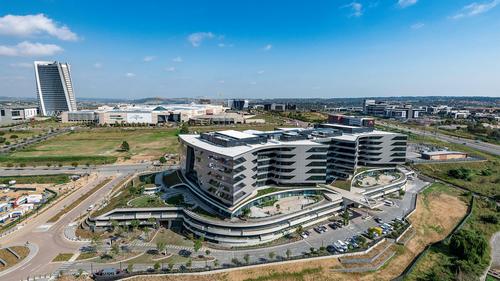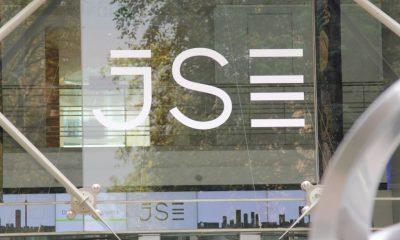Business
Navigating South Africa’s Commercial Real Estate Landscape Amid Political and Trade Pressures

South Africa’s commercial real estate (CRE) market is facing a turbulent mix of local political uncertainty and mounting global trade pressures. Despite this, experts believe that opportunities for growth remain—especially in key property sectors.
The South African rand experienced significant volatility in early April 2025, dipping to a near historic low of R19.93 against the US dollar on April 9 before recovering to R18.97 by April 14. Simultaneously, the Johannesburg Stock Exchange (JSE) All Share Index saw large fluctuations, dropping from 89,950.79 on March 31 to 82,485.81 on April 9, before rebounding to 88,162.30 by mid-month.
The cause of this instability? A new 31% reciprocal trade tariff imposed by the United States on South African goods, effective April 9. This drastic increase in tariffs from an average of 7.6% has shaken South Africa’s trade channels, which were previously benefiting from trade agreements under the African Growth and Opportunity Act (AGOA). For smaller economies like Lesotho, where textiles and manufacturing make up a significant portion of GDP, these tariffs could be devastating.
A Mixed Outlook for Commercial Real Estate
Despite these challenges, there is a silver lining for South Africa’s CRE market. According to John Jack, CEO of Galetti Corporate Real Estate, the commercial property sector has held its ground and even shown signs of improvement in recent months.
“South Africa started 2025 with positive momentum, driven by lower interest rates, a stronger rand, and a boost in investor confidence,” Jack said. “However, as the year progressed, we saw some testing of that momentum due to political and global factors. That said, the commercial real estate market is still in a relatively strong position.”
The commercial property sector in South Africa came back strong in late 2024. Vacancies declined, net operating income improved, and investor interest increased. This recovery was supported by rate cuts, easing inflation, more consistent energy supply, and the formation of the Government of National Unity (GNU). As a result, despite the global volatility, certain commercial property assets remain attractive to investors seeking stability and long-term returns.
Global Trade Pressures and Investor Behavior
Global trade tensions are certainly making waves in the broader economy, but Jack sees these pressures as an opportunity for savvy real estate investors. “During times of uncertainty, investors often look for safe, long-term assets. Commercial real estate, particularly properties offering stable yields, becomes an appealing option,” he said.
Commercial real estate in South Africa remains attractive, particularly in logistics, repurposed office spaces, and tourism-driven properties. While political and economic uncertainty may cause short-term hesitations, these sectors continue to draw investor interest for their predictability and potential for income generation.
Resilience Amidst Volatility
South Africa’s CRE market has proven resilient, especially in the face of structural challenges such as energy supply issues and political instability. As global trade tensions evolve, the right property assets offer a hedge against market volatility.
Jack advises CRE investors to remain disciplined in their approach, keeping an eye on macroeconomic indicators, diversifying portfolios, and focusing on demand-driven property nodes. He also recommends exploring regional markets to mitigate risks associated with national uncertainty.
For developers and investors, the key to navigating South Africa’s CRE landscape will be staying flexible with leasing terms and carefully evaluating new opportunities in emerging property sectors.
Strong Returns and Bright Prospects for 2025
The MSCI South Africa Annual Property Index recently revealed that South African real estate posted its highest return since 2015. The index tracked over 1,700 property investments, showing an 11.5% ungeared total return to December 2024. This was driven by an 8.4% income return and positive capital growth of 3.0%. These returns highlight the enduring strength of South Africa’s real estate market, even amid the challenging global and political landscape.
{Source: IOL}
Follow Joburg ETC on Facebook, Twitter , TikTok and Instagram
For more News in Johannesburg, visit joburgetc.com





















